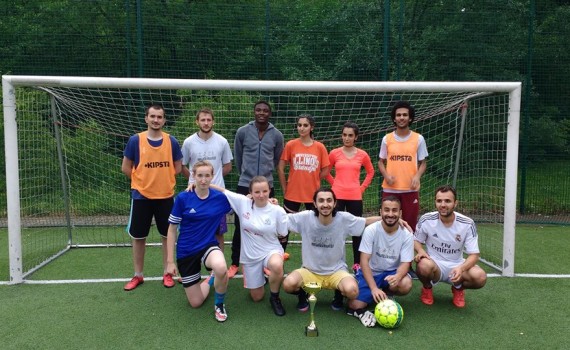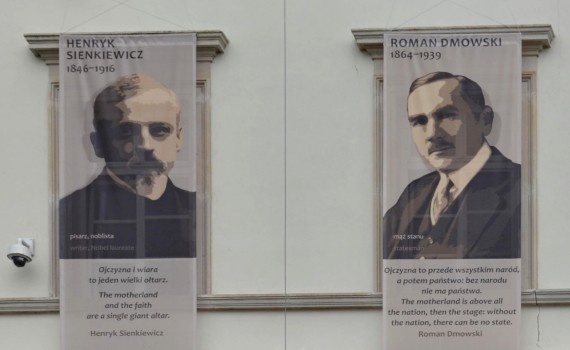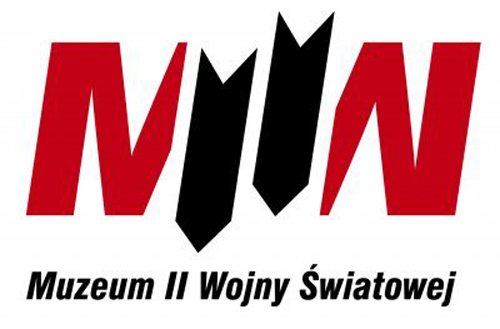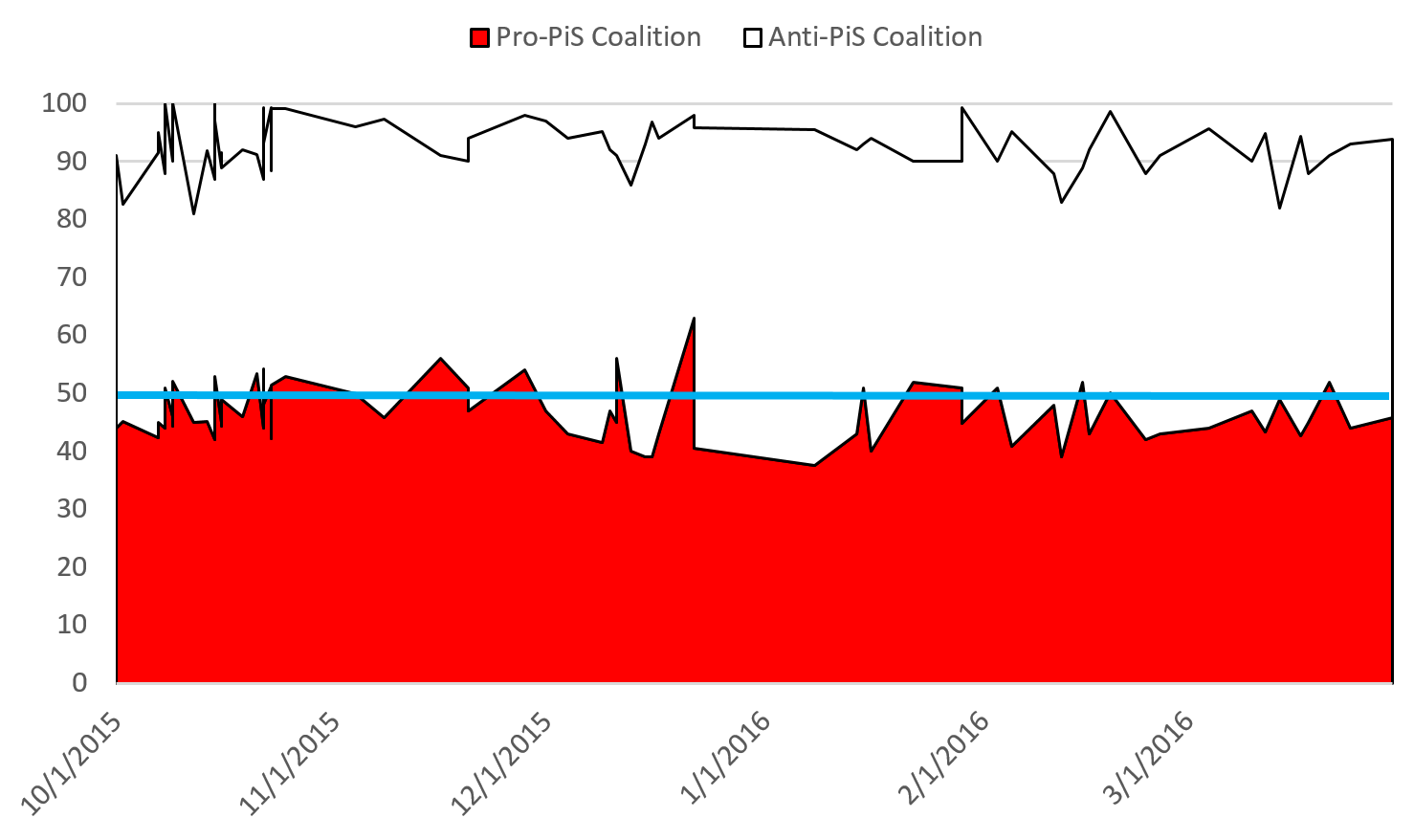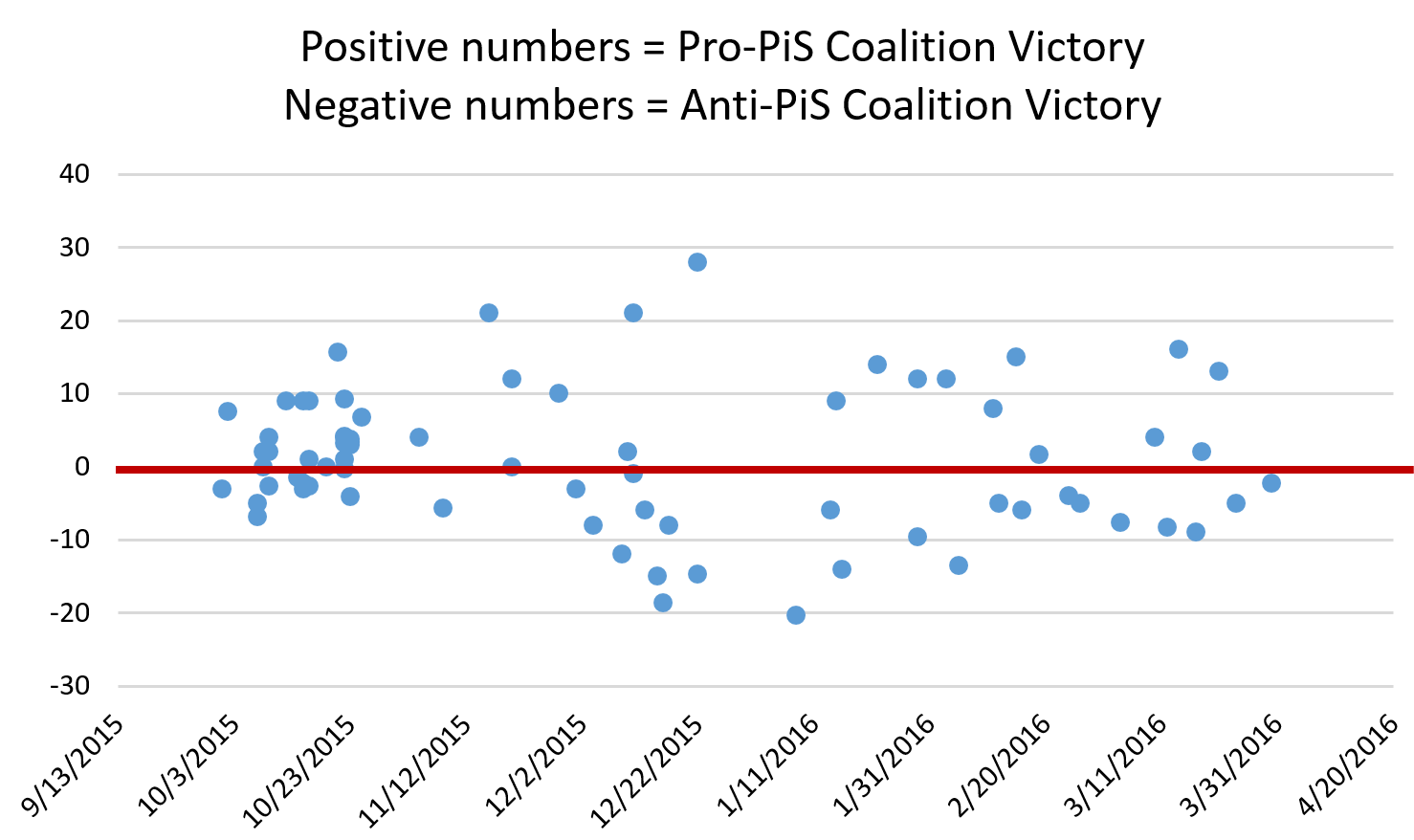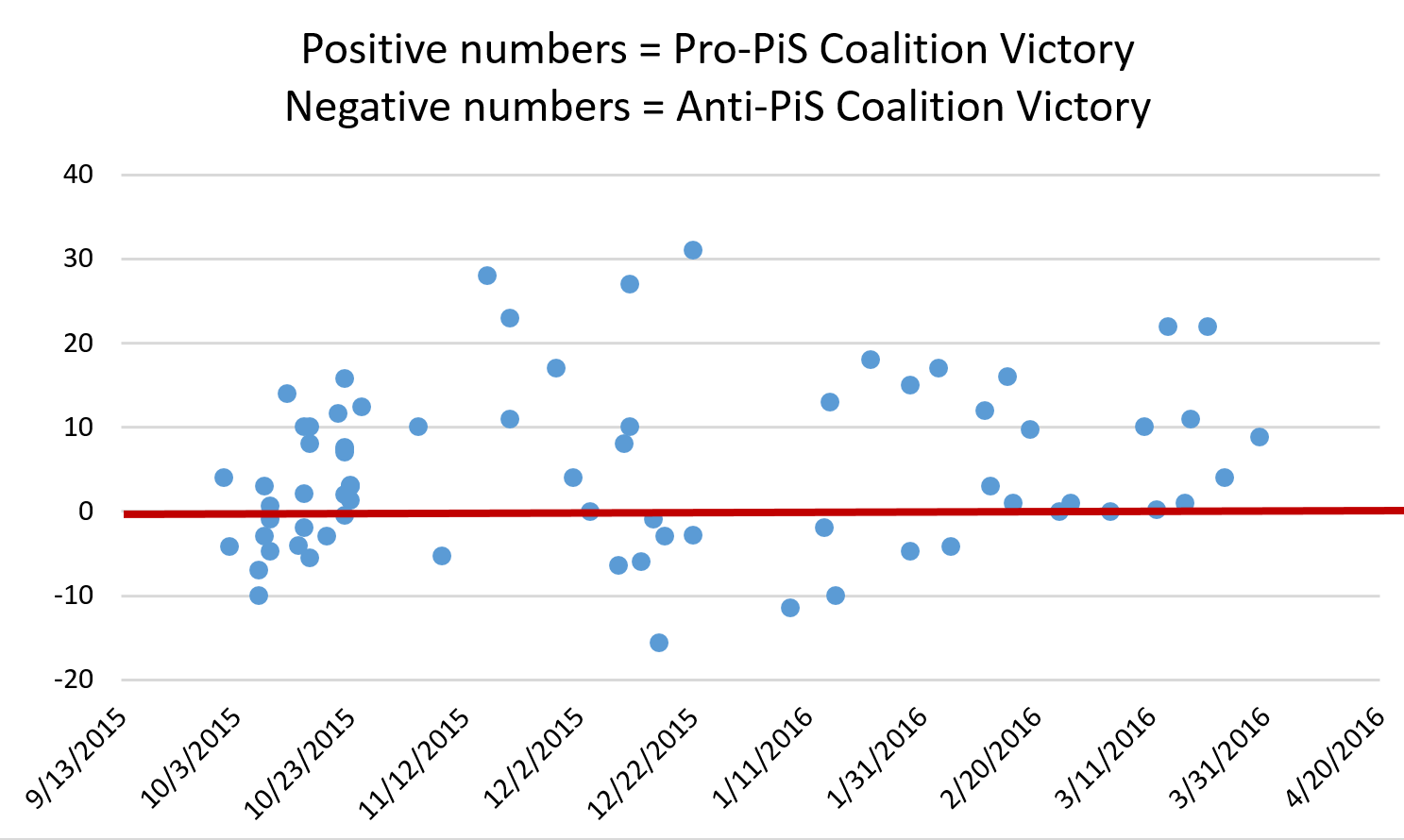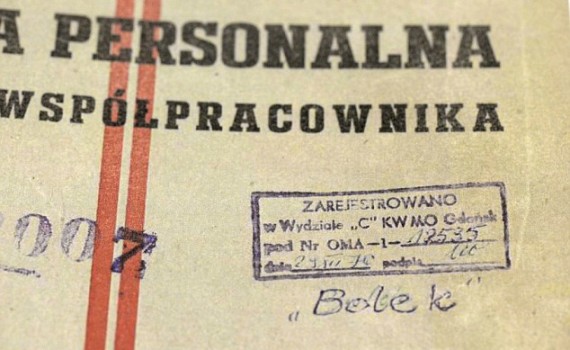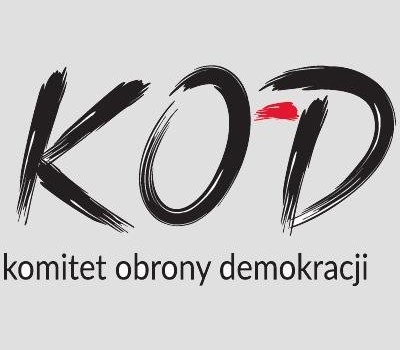If we are to fully grasp what is happening in Poland today, we must start with a nuanced understanding of the worldview of the Law and Justice movement (Prawo i Sprawiedliwość, or PiS), and their leader, Jarosław Kaczyński. With that in mind, I’ve translated an extended excerpt from the PiS party platform, supplemented by quotations from Chairman Kaczyński from both his earlier period in power (2005-2007) and more recently.
I offer this material under Creative Commons copyright, meaning that anyone is free to use this translation as long as they credit the source. The PiS program in the original Polish is available at http://pis.org.pl/dokumenty; the other texts are from public speeches that are widely available on multiple websites.
Please let me know if you identify any errors in the translation (see the contact tab above).
_________________________
Law and Justice Party Program, 2014
Our Principles and Values[1]
Translated and Annotated by Brian Porter-Szűcs
At the ideological foundation of the Law and Justice program lies respect for the inherent, inalienable dignity of every person. The protection of that dignity is the primary duty and the justification for existence of every political community. Dignity is the most elementary foundation of the rights of the human person. Three of those rights have particular importance: the right to life, the right to liberty, and the right to equality that is rooted in human solidarity.
The Right to Life
The right to life determines relations between individuals and the community in such a way as to exclude the possibility of making arbitrary decisions about taking the life of another person; it protects them also from acts of self-destruction. Today this refers above all to the protection of life from conception, as well as the rejection of euthanasia.
In these questions are position is clear: we protect and we will protect life and oppose euthanasia. But the problem is broader, because the right to life also determines the structure of society, which ought to be aimed at eliminating dangers to life resulting from material poverty, the brutalization of interpersonal relations, tolerating criminality, spreading racial, political, national, or cultural hatred. Defending the right to life, we nonetheless realize that the defense of the community and the individual from foreign and domestic aggression—in other words, guaranteeing public security—might demand risking the life of a soldier, a state official, and sometimes even citizens who are not performing a public function.
Liberty
Our stance regarding the protection of life does not contradict heroic values. We are convinced that only free people can effectively strive for their own success, and the success of their families, loved ones, and the community to which they belong—that is, the national community.
The existence of the individual is both individual and collective. Each of us takes advantage of the special gift that is intelligence and the ability to create higher values only thanks to our membership in communities of various kinds—beginning with the family, through local and professional communities, all the way to a society constituted through historical processes into a nation.
Solidarity
Full human existence is tied to belonging, which creates both rights and duties. We decisively reject the juxtaposition of individual liberty and the rights of the community. We consider this a false dichotomy. Both the right to life and to the liberty of the individual are tied to solidarity, which is the foundation of every community. Solidarity is inseparably tied to justice and equality.
Equality
We recognize the historical baggage that has left its mark on the definition of equality. We remember the horrible results of the social experiments (including crimes) that were justified by appealing to equality. We know that the aspiration to equality cannot mean the destruction of the individual characteristics of every person, or the creation of a system that would constrain the positive energy of people who are particularly creative in various areas of life, including economic life.
Justice
We treat the postulates of justice and equality as important premises in the construction of social order and of international relations, in such a way as to give, to the greatest degree possible, an equal chance in achieving a social position and material well being. But social advancement and the increasing of one’s wealth should proceed in accordance with moral principles and a desire to preserve respect for every individual. Therefore, from the beginning of its existence, Law and Justice evoked the social teachings of the universal Church.[2] In the encyclical Sollicitudo rei socialis Pope John Paul II wrote, “one must condemn the existence of economic mechanisms which, through they are directly by human will, function as if they were automatic, reinforcing the wealth of some and the poverty of others.” These words referred to relations between states, but they could certainly relate to domestic relations in society. This issue was raised by Pope Frances, too, when he emphasized that “just like the commandment ‘thou shall not kill’ established clear boundaries for ensuring the values of human life, so today we must say ‘no’ to an economy of exclusion and social inequality. Such an economy kills. The law supports the strong, so the might prey upon the weak. As a result of this situation the great mass of the population are excluded and marginalized, without work, without perspective, without a way out.”
These remarks were formulated on the bases of experience of territories outside of Europe, but nonetheless they point to the fatal phenomenon that appears, albeit in a much lesser degree, also in our nearest surroundings, in Poland. The postulates of justice and equality mean that one must condemn and reject the forms of social exclusion and economic inequality that are particularly burdensome for women.
The Community
The concept of community refers to various social groups, but the most important of them are the family and the nation. We consider the family, the foundation of which is the enduring union of a man and a woman, to be the fundamental structure of social life, in which are realized a person’s most essential needs, among which is the need for closeness with other people. In a family children are born, and thus is realized the fundamental condition for the perpetuation of humanity—the continuity of generations. It is precisely within the family that children are educated and prepared for participation in adult life. The family cannot be replaced—regardless of whether we look at it from the religious or secular perspective. Even in an entirely post-religious sense, it is the foundation of our civilization in its monogamous and enduring form.
The Nation
The nation, which we understand as a community of culture, language, historical experiences, political traditions, civilizational values, and lived fate, is the broadest social group constituting an effective foundation for a democratic political community.
We do not define the nation in an ethnic sense—not only because of our negative stance towards national superstitions, but also because of our familiarity with Polish history. The Polish nation was shaped and matured by joining into its community people of various ethnic belonging. An affirmation of national belonging also means, for us, a full willingness to recognize the agency of other national communities. Neither do we assume that the existence of nations must lead to destructive conflict, although at the same time we recognize that competition between nations is a very important characteristic of reality for the individual, and we recognize that this can lead to drastic consequences.
We do not treat belonging to the Polish nation as a value just because it was given by birth and cultural inheritance, but also because it results from a characteristic of our tradition. It is related in an inextricable way with Christianity and has an exceptionally strong connection to freedom and equality.
The Republic of Freedom and Equality
In past eras, freedom and equality were realized in an extremely defective way, relating only to the privileged strata that were identified with the nation. Despite unfavorable conditions, a democratic process broadening the concept of the Polish nation and citizenship to the plebian stratum—that is, the people—began in the 19th century, to be fully realized in the 20th. The most important Polish political movements—the insurrectionist, national, populist, and social democratic movements—played a huge role in this process. The universal Church also played a large role. The coronation of the aforementioned process was the creation of the Second Republic, which, from the beginning of its independent existence, introduced civic equality into the law, thus eliminating all differences between the estates, all limitations for women, all discrimination of nationalities. Labor laws and other regulations protecting economically weak social groups were also introduced. Regardless of the Second Republic’s crisis of democracy (understood as a mechanism of selecting governments)[3], these fundamental laws and the values stemming from them were never questioned.
The Enemies of Liberty and our Resistance
After the criminal German and Soviet occupation, the communists rejected these fundamental values, using force and applying mass repression. But the Poles challenged communism and rebelled in defense of traditional Polish values. We are referring above all to the many events in the history of the Polish People’s Republic, starting from the social resistance, the symbol of which became Stanisław Mikołajczyk and the “Cursed Soldiers,” and ending with the Solidarity movement from 1980-1988.[4]
It is characteristic that many anticommunist protests were tied to the defense of the Catholic faith and the universal Church. Memory of the fundamental values of Polishness were also revived, its symbols were evoked. The story of a free Poland and free Poles, repressed in every way by the Communist authorities, also revived. Historical memory received a special expression in the great and unique Solidarity movement, which strongly evoked the Polish tradition of liberty, equality, and solidarity based on justice. That movement could not have arisen were it not for the pontificate of John Paul II, His teachings, and His faith in national rebirth, which He demonstrated during his first pilgrimage to Poland.[5] His clearly-formulated patriotic thinking sank deep into social consciousness, and simultaneously became a stimulus for national rebirth: “There is no justice in Europe without an independent Poland,” “Let Your Spirit come down! Let Your Spirit come down! And renew the face of the earth. This earth!” “I beg you to once again accept with faith, hope, and love the entire spiritual heritage that is called ‘Poland.’”[6]
Poland’s Contribution to the History of Liberty
The teachings of the Catholic Church, Polish tradition, and Polish patriotism are tightly bound together, forming the political identity of the nation. Liberty is at the center of Christian teaching about the person; it is the essence of our national history; liberty constitutes the meaning of life for Poles. That’s why Polish national belonging, understood as a heritage of liberty, equality, and respect for human life, has a universal meaning. We see it as the contribution of our nation to the universal history of liberty.
The correspondence between the teachings of the Catholic Church and the national tradition is clearly evident with regards to the family. Polish tradition always treated the family as particularly valuable, and in the period when we lacked independence, the family was very often the foundation of national identity. In contemporary research the family is treated, as a rule, as something particularly valuable, as a means to an ever fuller self-realization in the history of our humanity. The universal nature and the universal value of Polish historical and cultural experience is not accidental, just as the unity of the mission that is expressed in Christianity, and which was captured in the social teachings of the Catholic Church and in Polish experience, is not accidental.
Relations to the Catholic Church
In our history the Church played, and continues to play, a unique role, different than in the history of other nations. It not only created our nation and our civilization, but also protected it—when the Church, already in the middle ages, rejected efforts by foreigners to rule, when later the first authors calling for a renewal of the Republic came from the clergy.[7] In the extremely unpropitious circumstances of the time when Poland was partitioned, just as in the Polish People’s Republic, the Church was the foundation of Polishness, and fulfilled its role as a substitute for the non-existent sovereign state. In this context, we must remember the person and the teachings of the Primate of the Millennium, Stefan Cardinal Wyszyński.[8]
To this day, the Church sustains and proclaims moral teachings that are universally recognized in Poland. There is no competition in the wider society, so it is entirely correct to say that in Poland the moral teachings of the Church are opposed only by nihilism. For these reasons, the unique status of the Catholic Church in our national and state life is extraordinarily important. We want to maintain it, and we believe that attempts to destroy the Church, and unfair attacks on the Church, are threats to the form of our social life.
The State
The state is an organization of a global nature, which means that it encompasses in its activities all other organizations and social communities, including ethnic communities. It is a moral value, and its existence and activities must be grounded both in the ideological and historical spheres. One might say that a well-built state demands axiological and historical legitimacy.[9] The first kind of legitimacy is tightly connected with the subordinate role of the state vis-à-vis the nation. That subordinate role encompasses every function, but for us of particular importance is the defense of life, security, liberty, and solidarity based on justice, with which civic equality is tightly bound. Requirements of this sort can only be realized in a democratic state.
Democracy Overcomes the Dilemma of Security vs. Liberty
We decisively reject the idea, encountered often both now and historically, that there is an opposition in policy between security and liberty. Accepting a conception of the person based on personalism[10] and solidarity, grounded on justice and a vision of social order, one can overcome that contradiction by utilizing the mechanisms and procedures of democracy. Only democracy guarantees individual agency, that is, civic existence, and only in a democracy can one build a balance of social forces that will enable just policies and also guarantee the rule of law.
The Polish State as a Primary Value
The democratic state has, therefore, a basic significance for securing the realization of the fundamental rights of the individual. Democracy, as shown by historical experience and by the analyses of sociologists and political scientists, is effectively practiced only in national states. Democracy also demands the existence of so-called cultural factors, without which it is only a collection of procedures—practically a fiction. For us Poles, having our own state has an additional significance: for 123 years there wasn’t any sovereign Polish state.[11] We could not decide our own fate. This is the reason that we consider the Polish state to be a value of the greatest weight, and why any undermining of its sovereignty, or its very existence, is unacceptable and fatal. The state, after all, regardless of the method it arises, is the contemporary expression and defender of national interests.
Our state, our liberty, the democratic and solidaristic order cannot be treated in isolation from each other, abstracted from international relations in which globalization and the open society dominate, at least in Europe. Poles can, more or less frequently, have contact with other nations, which leads us to the conviction that the full realization of the values that constitute our nation is possible today only if it quickly develops in the economic and cultural spheres. The distance still separating us from wealthier and better organized societies will decrease, and then be entirely eliminated.
A Sense of our own Value and the Demographic Crisis
Looking at Poland during the first decades of the 21st century, at our accomplishments but also at the dangers we face, we must recognize that we will not achieve that goal if we do not stop the processes that weaken us, above all the demographic crisis, which is strengthened by the depopulation of Poland, by the emigration of people who don’t have work or are disappointed by their living conditions. There are clear signs that this is not a process determined only by economics. There are also cultural causes. One must only look at Hungary in order to confirm this thesis. A lack of a sense of one’s own value, the value of one’s culture, can be a factor that determines the strength of these negative processes.
An Effective State
Both rapid development and the elevation of Poles’ sense of their own value demand not only a sovereign and democratic state, but also an effective state. Only such a state can build a good level of legitimization for the authorities and the community, only it can create citizens with a high level of comfort in everyday life. Precisely for this reason, although we decisively reject etatism (that is, the desire to turn over to state control broad spheres of social life), we also reject the inability of the state to undertake necessary action in the defense of the community’s interests, the well-being of its citizens, and its own self-defense.
The state must have the real ability to fight pathologies, and it must not be permitted that its organs be exploited by external control centers that act for their own benefit. It is also unacceptable that the state would be incapable of mobilizing the forces and means for realizing great social or economic undertakings that are needed for the common good. Such a situation is contrary to the principle that the state serves the common good, which is the foundation of so-called practical legitimacy. Our own sovereign national state is, for us, a key value, because without it, it is impossible to realize the other values that we consider foundational.
Europe Strengthened by Diversity
The aforementioned reality of contemporary Europe requires us to pose a question regarding our relation to the ideas that stand at the foundation of a unifying Europe. We do not reject them; quite the contrary, we consider them very important and worth preserving. We think, however, that the richness of our continent and its civilization is the enormous diversity of Europeans. The only path that can ensure the strength and the development of Europe is to maintain this diversity as a permanent feature of the cultural landscape. Unification or the radical impoverishment of that diversity, replacing the cultural heritage with primitive civilizational experiments, will mean the weakening of our continent.
It would also mean an acceptance of hegemony, that is, the condition that the creators of the European Community decisively rejected, because the hegemony of one state across the continent would lead to a return to the policies that inevitably end with sharp conflicts and, ultimately, to war. The aspiration to avoid these consequences was at the foundation of the process of unifying Europe, which began in 1951. We want all of Europe to be a the sphere of liberty, equality, solidarity, and justice, and we think that the model of social life founded on the values of our tradition, when they are brought to life, can play a decisive role as a good example. We reject, however, all actions aimed at cultural unification. This is our credo for Europe: the continent of cultural diversity.
Euro-realism rather than Aggressive Political Correctness
We reject political correctness, that is, the limitation that is striking Europeans in ever more painful ways, thrust upon us nowadays not only by cultural aggression, but also by way of administration actions and judicial repression. We do not accept the uncontrolled erosion of the sovereignty of European fatherlands. We will defend our liberty decisively, erecting the strongest legal barriers against such practices vis-à-vis Poland. This is our Euro-realism.
It is Worthwhile to Hold our Values
It is worthwhile to be a Pole, to belong to our national community, and therefore it is worthwhile that Poland continues to exist and that it has its own state. A state that is sovereign, democratic, governed by law, but also effective. It is worthwhile for the Polish family to continue to exist and grow. Such a condition is possible, if we will develop as a nation, a community of free Poles, a community of Polish families, a democratic organism, a political agent and a cultural model. It is worthwhile for us to defend against threats to our liberty. We can achieve this if we overcome the demographic crisis, the crisis of the family, the crisis of parenthood and the problem of emigration, as well as the so-called middle-income trap in the economy.[12] Rapid development and the fundamental modernization of our economy are the best guarantees for improving the existence of Polish families. It is necessary to strengthen our state, our democracy in Poland, because without it we will not be in a position to reach our main goals.
In the chain of cause and effect, repairing the state is essentially in the first position. The state cannot be repaired immediately, but a change of government to one that is honest, not entangled in vague commitments,[13] guided by the principles of the common good, and capable of carrying out competent policies and having a plan of action—all this is an important step towards the repair of the state.
Repairing the state must be realized together with actions in the economic and social spheres. With the goal of gathering these actions into a coherent plan, it is necessary to carry out a diagnosis of the situation. This must be preceded by the most general formulation of needs, tied to the aspiration to repair the family and to escape from the middle-income trap. Both emigration and the crisis of the family have their material and cultural causes, such as the lack of work and of apartments, the lack of a family policy, the horrible health care system, very low pay and limitations in labor law, a general uncertainty in employment and an uncertainty about one’s future fate.
Emigration is caused by the aforementioned material insufficiencies, but also by the overall low level of comfort in life. There are so many forms of oppression that must be endured in our fatherland by citizens who find themselves in various social roles, for example, workers, farmers, businessmen, consumers, property owners, urban residents using public transportation, people who use the roads, parents, students, young adults, patients, retired people, people longing for access to high culture. Some of these social roles have a spiritual dimension. Without doubt, one of them is a role of particular weight: the role of being a Pole, which is so often devalued.
The spread of the ideology of gender is threatening for families and parents in Poland.[14] Its spread has an artificial character, conditioned above all by a stream of financial resources, mostly from abroad. Nonetheless, its activity grows, particularly among the youth, and it leads to a spread of conditions that are not conducive to forming families and having children. Setting up barriers against the spread of gender ideology is important. More important, though, are activities aimed at strengthening the family, defending parenthood, in particular the role of the mother and respect for motherhood, which ought to be treated not as a burden, but as a distinction and a privilege. Fatherhood should also be elevated to a higher rank, and the role of multi-child families must be underlined. Only by undertaking all these efforts together will we change the current unfavorable situation.
Escaping the Middle-Income Trap
Breaking out of the middle-income trap demands rejecting the claim that passivity is the only proper state policy vis-à-vis the economy. Active policies—that is, the enactment by the state of an economic policy—is the first condition of success. The second condition is the proper recognition, and then the exploitation, of resources that are today “dead,” or exploited to a limited degree. Among these we count financial resources, or other socially dynamic resources. One of the most important causes today for the insufficient utilization or the complete non-utilization of various resources are many pathologies, particularly corruption.
Social Energy
The necessary limitation of various pathologies will release social energy. Lasting repair of the state is necessary if we are to utilize this energy. Such repair does not require a change in the system of government, but only a well thought-out change in various parts of the state apparatus, the democratic mechanisms, including the control mechanisms. It also demands a strengthening of civil society. As we indicated, there exists a parallel need for actions regarding the repair of the state, the Polish family, and the economic sphere.
______________________________
From a speech by Jarosław Kaczyński on February 14, 2005, at the Stefan Batory Foundation in Warsaw.
We do not hide the fact that it is necessary to base the constitution on the system of values that is the only one known, present, and binding through Polish society. The repository of this system of values is above all the Catholic Church. This is a system that appeals to Christianity and to the national tradition. Of course, this does not imply an attempt to build a denominational state. I want to underline this very strongly! I am only referring to the actually existing system of values. Poland isn’t the sort of country, like Holland for example, where three competing systems of values (Catholic, Protestant, and nondenominational) compete simultaneously. When constructing public life, it’s necessary to deal with reality. In the system that I’m talking about, there is nothing that would be unacceptable to a nonbeliever, unless he is a personal enemy of the Lord God. There are people like that in Poland, but they are a minority. I don’t think that it would be necessary to enter into any kind of special, far-reaching compromises with them.
______________________________
From a Speech by Jarosław Kaczyński in the Sejm, March 14, 2006
The process that took place in Poland over the past 17 years was presented here as a process of emancipation from oppression. The state, by its nature, should be an organization with an oppressive character….If you do not accept the theses of anarchism, then the state is a necessary institution, at least today, at least in these times in which we live, and the state, which has before itself a task as huge as taking upon itself the reconstruction of society after communism, must be…a strong institution (applause), because only then can it lead to the fulfillment of at least one of the elementary conditions for the existence of a normal democracy and a normal market: an equality of opportunity. Because, after all, at the beginning, after 1989 (everyone must admit this, it’s been researched and described by scholars) those opportunities were drastically unequal. There was a mighty network of communist officials and, tied to that, privileges of various sorts, including to a huge degree economic privileges and privileges that indirectly had an economic aspect, but could be very easily transformed into economic privileges; for example, access to information or access to administrative decisions. And there was a huge mass of people deprived of these privileges. I would permit myself to say…that the latter people were better than the former (applause).
But there was something else, which we must not forget. There was also a powerful collection of social pathologies that were created already in communism, and particularly in late communism: criminal pathologies, pathologies tied to corruption, with the decay of the state apparatus, with its criminalization, with the situation in the special services. And a strong government had had to fight this—or ought to have fought it, because unfortunately it did not fight. But we did not build that sort of strong government after 1989.
And why did the Solidarity camp not build that sort of government? Well, for various reasons. I do not want to reify any of them, but one of them that was absolutely essential was the rapid creation of a space for cooperation between the postcommunist forces and the forces (or rather, part of the forces) that emerged from the Solidarity camp. That space was a specific understanding of liberalism. That space was lumpenliberalism (applause).[15]
This is what enabled, on the one hand, abuses in the manner of building a capitalist economy, and on the other hand, it made it possible to claim (with all the seriousness in the world) that liberty consisted of sex shops…and that the main enemy of liberty in Poland was the Church. That’s how it was (applause). Everyone who remembers that time can recall this perfectly well….And indeed, a strong state, a strong government was not built in Poland. With all the consequences that come from that….
[Facing his opponents] You are all a collection or, one might say, a coalition of various local networks….If you think that someday you will come to power, you are mistaken….”
______________________________
From a TV interview with Jarosław Kaczyński, December 11, 2015.
This is a return to the methods of 2005-2007….This habit of denouncing Poland to foreigners. In Poland there is a fatal tradition of national treason. And this is precisely tied to that. It is sort of in the genes of some people, the worst sort of Poles. And that worst sort is precisely now extraordinarily active, because they feel threatened. Just consider that WWII, then communism, then the transformation were carried out in the way they were carried out: precisely this type of person dominated, was given every chance. They are afraid today that the times are changing, that the time is coming when things will be as they are supposed to be, and another type of person—that means, those having loftier, patriotic motivations—will be placed in the lead, and that will apply to every aspect of social life, including economic life.
______________________________
From a Speech by Jarosław Kaczyński on December 13, 2015.
There are those, and there were those yesterday, who say “we are defending democracy.” It is just like in 2006 and 2007. The opposition will act without any limits, it will attack the government, it will insult the president, just like happened yesterday. The majority of the media will attack, there will be peaceful demonstrations—yes, like the one yesterday. Is this democracy, or is it a dictatorship? They are trying to convince people that in the middle of a hot summer it is a freezing, harsh winter. And there are people who will hear something on television and be ready to believe it. They will go outside, dress in a winter coat, and still say that they are cold. But these are not people who are right in the head, who think correctly. Right here are the people who think, and who know perfectly well that in Poland there is no threat to democracy….
This is mostly about fear. About ensuring that the gigantic wave of abuse that took place over the past eight years does not come to light….Those who, during the so-called transformation, abandoned communism, gave up power for property—they want to continue to get fat. And those who were coopted into that group, too. Even if they allow crimes to take place….
And that’s what this is about. Not to give anything to the ordinary Pole, and make it possible to continue to rob Poland. That’s the meaning of this controversy. That is what this is all about. The Constitutional Tribunal was supposed to be the last defense…for that network. For everything that was bad and disgraceful over the past 26 years. And we want to change that. And therefore we must change the Tribunal. We must make it into an institution that will truly be for the citizens, that will defend the constitution, but not in a way that allows the constitution to apply to some but not others. That’s the meaning of what is happening today. We can say, finally, that the Warsaw common people already yesterday, during the demonstrations, managed to respond to that. It wouldn’t be appropriate for me to cite that response in full. It began this way: “All of Poland is laughing at you….
(a shout from the crowd: “communists and thieves!”)
Yes, sir. That’s what this is about. And that’s the whole truth about what is happening today in Poland. But we can’t simply laugh. We must triumph. You can count on us. We will manage. We will triumph!
We must ask, what is this really all about? Well, it’s clear. This is about the great reconstruction of Poland that we are undertaking, in the interests of the overwhelming majority of Poles. We must change Poland. We must make it more just, more solidaristic. Those are not words, those are concrete actions. They want to make it impossible for us to give 500 złoty to every child.[16] Will someone say why? Because we are giving it. That’s not permitted…. They do not want to permit that people over 75 years of age receive free medicine. That we try to increase incomes in Poland, that there will be a pact to raise pay. That Poles will begin to earn as much as would follow from our per capita income. Because they earn less that would follow from that.[17] They do not want to permit the disbanding of that band of cronies that they placed in the civil service.[18] And they don’t want to permit repairs to the judicial system—an institution, that is assessed by society with particular criticism, despite the fact that the media supports it very strongly.[19]
Do you want a justice system in which a poor person, a resident of a nursing home who buys himself a television, and later can’t pay the installments on his debt, lands in prison, but conspirators and gangsters remain free? Do you want farmers who want to buy Polish land to end up in prison, while those who hold guns to people’s heads are free? That’s how things look today….
______________________________
NOTES
[1] The program consists of two parts: “Point of Department” (with the subheadings “Our Principles and Values” and “Diagnosis”) and “A Project for Poland” (with the subheadings “Repairing the State,” “Economy and Development,” “Family,” “Society,” and “Poland in Europe and the World.”) The complete document is 168 pages long. Only the first sub-section is translated here.
[2] Throughout this text the authors frequently use the phrase “universal Church” (Kościół powszechny) rather than “Catholic Church” (Kościół katolicki).
[3] This is a reference to the military coup led by Józef Piłsudski in May of 1926.
[4] Stanisław Mikołajczyk was the leader of the Polish Peasant’s Party and the Prime Minister of the Polish Government-in-Exile from July 1943 to November 1944. In June of 1945 he returned to Poland in order to form a coalition government with the communists, but was pushed out of power and forced into exile in February 1947. The “Cursed Soldiers” (Żołnierze wyklęci) is a popular label for the WWII partisan forces that continued fighting even after the Nazis were pushed out of Poland, on the grounds that Soviet domination was merely another kind of occupation. Solidarity was a broad anticommunist movement that initially emerged from a labor protest, then expanded to encompass millions of Poles from every walk of life. It was outlawed in 1981, but continued to exist in conspiratorial form through the rest of the 1980s. Representatives of the Solidarity movement negotiated with the communists in 1989 to arrange a peaceful transition of power. Solidarity continues to exist as a labor union, and is closely affiliated with the Law and Justice Party.
[5] A reference to John Paul II’s trip to Poland in 1979, one year after beginning his pontificate. The capitalization of the pronouns is from the original.
[6] These are quotations from sermons delivered by John Paul II during that trip in 1979. The first passage is actually from Józef Piłsudski, though John Paul II did quote the line.
[7] Several of the most prominent figures of the Polish Enlightenment were priests, albeit controversial and heterodox ones.
[8] Stefan Wyszyński was the Primate from 1948-1981. At the time, the Primate (Prymas) was the leader of the Church in Poland, though after 1994 the position was transformed into an honorary one, and the chairman of the national council of bishops (who is elected with a five-year term) became the actual administrative head of the Church. After the celebration in 1966 of the 1000-year anniversary of the baptism of the first Christian ruler of Poland, Prince Mieszko, Cardinal Wyszyński became known as the “Primate of the Millennium.”
[9] Axiology is the philosophy study of value (in the ethical and aesthetic sense). Catholic authors in Poland often contrast neutral procedural democracy with an axiologically justified democracy based on Catholic values.
[10] The original Polish is not as repetitive: “personalistyczną koncepcję człowieka.” Catholic personalism is a philosophical and theological approach that contrasts “the person,” understood as both a material and spiritual being, with the liberal concept of “the individual.” Personalists argue that liberal individualism reduces us to a socially isolated, materialistic, nihilistic existence, and advocates instead a more holistic recognition of the inherent dignity of the socially embedded and spiritually elevated person.
[11] Between 1795 and 1918 there was no fully independent Polish state, though there were various semi-autonomous entities tied to either Russia, Prussia, or Austria-Hungary.
[12] “Pułapka średniego rozwoju”: the idea that Poland is stuck in an intermediate position between the impoverished Third World and the wealthy First World, blocked from further advancement to the top tier.
[13] This is an allusion to the belief that previous Polish governments were led by people with ties to various “układy” (a term that could be translated roughly as “networks” or “conspiracies”), aimed at maintaining the power of a narrow elite (often operating behind the scenes).
[14] This phrase is used on the right in Poland to refer to the idea that gender roles are socially constructed, rather than inherent.
[15] A play on the term lumpenproletariat, a term used by Karl Marx to refer to the most degraded segments of the working class, the ones that would be the most difficult to ever elevate to class-consciousness.
[16] A reference to a plan to increase welfare benefits to families with multiple children.
[17] A reference to the fact that many Poles have incomes below the statistical average.
[18] The PiS government was purging the civil service, replacing hundreds of state employees with people who supported their party. To support this move, they argued that the current civil service staff supported the previous government.
[19] Probably a reference to the PiS government’s attempt to weaken the authority of the Constitutional Tribunal, or perhaps a reference to their plan to replace independent prosecutors with people responsible to the Minister of Justice.
